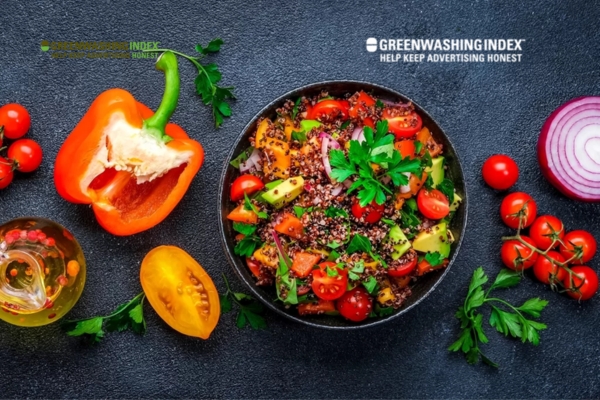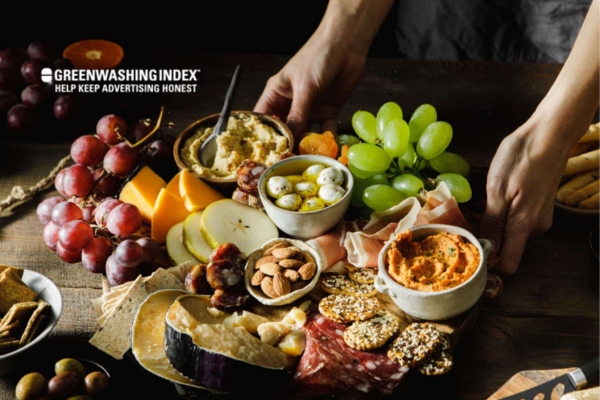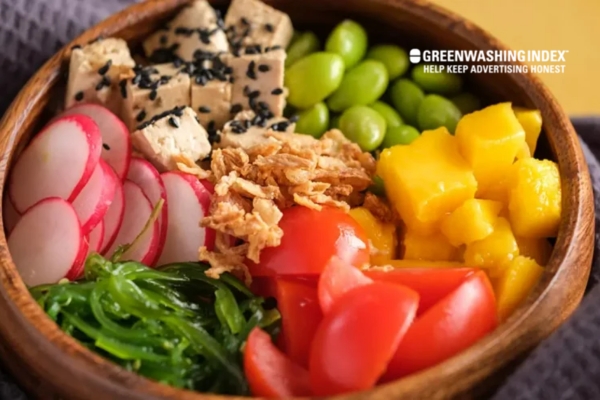Imagine a way of eating that not only takes care of your body but also looks out for our planet. That’s what the Mediterranean Diet is all about!
This wonderful meal plan has been around for ages, charming people with its delicious flavors and healthy perks. But did you know it’s also a friend to Mother Earth? Keep reading because I’m going to share why this diet might just be the best decision you’ve ever made – for both your health and the environment.
The Mediterranean Diet is all about enjoying plant-based foods, like fruits, veggies, whole grains, and nuts. It encourages eating fish and poultry over red meat and savoring every bite you take.
Not only is this way of eating good for my body by keeping my heart happy, but it also means taking a step towards saving our planet. It uses less water and emits fewer greenhouse gases compared to other diets – that’s something I can feel good about every time I sit down to eat.
What You’ll Discover Here:
- Simple steps to start the Mediterranean Diet.
- How this diet supports a healthy heart.
- The environmental benefits of choosing Mediterranean meals.
- Tips on saving money while following this lifestyle.
The Basics of the Mediterranean Diet
The Mediterranean Diet is like a treasure chest brimming with eating habits that are both good for you and friendly to our environment. Let’s delve into its basics, shall we?

Understanding the Core Principles
When I think about eating right, caring for my health, and looking after our planet, the Mediterranean Diet comes to mind. It’s not just a way of eating; it’s a way of life. So let me tell you about it in simple words.
Firstly, this diet loves plant-based foods. That means lots of vegetables and fruits make up most of what we eat every day. It’s like having a little garden on your plate!
Here are some key points:
- Vegetables and Fruits Above All: Every meal is full of colors from all the plants we eat.
- Whole Grains Are Important: Foods like bread, pasta, and rice are common but always whole grain – they’re closer to what nature gave us.
- Healthy Fats Are Good: We use olive oil a lot. It’s better than butter or other fats that can be rough on our hearts.
- Nuts and Seeds for Snacks: Instead of chips or sweets, nuts or seeds are tasty snacks that keep us feeling good.
- Fish Over Meat: Fish swim their way onto our plates often; meat doesn’t show up as much.
- Cheese and Yogurt In Moderation: A little bit is alright, but we don’t go overboard with dairy products.
- Herbs Make It Tasty: Instead of salt, fresh herbs make our foods delicious without being too salty.
This diet isn’t just about eating specific things but also enjoying meals with family and friends – sharing food is a big part of it! Here is a study from Harvard shows benefits about Mediterranean Diet.
Regional Varieties within the Mediterranean Diet
The Mediterranean Sea washes up on many different shores, so naturally, there are small changes in how people follow this healthy way of eating depending on where they live.
Here’s how some regions put their own spin on it:
- Spain Likes Their Gazpacho: In Spain, they blend veggies into a cold soup called gazpacho – it’s refreshing!
- Greek Salads Are A Big Deal: Greeks toss tomatoes with cucumbers, olives, and feta cheese – simple yet so good.
- Italian Pizza Has Thinner Crusts: Over in Italy, pizzas have thin bases packed with flavor like fresh tomatoes along with veggies or seafood topping them
These examples show us one important thing: no matter where you look around the Mediterranean Sea, people enjoy tasty meals that come straight from nature. And though dishes might change from place to place, they all keep to these wholesome principles.
Remembering these details can help anyone try out this sustainable nutrition plan that looks after your health while also being kinder to our Earth!
Sure, I’ll talk about the Mediterranean diet and how it benefits not only your health but also the environment.
Also Read: How to Start a Compost Pile: A Beginner’s Guide
Health Benefits Linked to the Mediterranean Diet
When it comes to eating right, I always hear about the Mediterranean Diet popping up as a top choice. People rave about how good it is for our bodies and even our planet. So, let’s dive in deep and explore why this way of eating is so amazing.

The Heart-Healthy Dimension
When I think about a diet that’s good for the heart, the Mediterranean Diet often comes to mind. It’s like a treasure chest for your health, especially when it comes to your heart. Scientists and doctors seem to agree. They say that eating this way can really make your heart stronger and healthier.
What’s in the Mediterranean Diet? Well, imagine sitting by a sunny seaside and enjoying lots of fruits, vegetables, nuts, and whole grains. Add some olive oil for cooking and dressing, fish a few times a week, and red meat only once in a while. Plus, you can have some yogurt or cheese almost every day.
Here’s the cool part: research shows this kind of eating plan helps keep your blood vessels clear of stuff that shouldn’t be there. This means blood flows better, which is super important for keeping your heart in tip-top shape.
Some experts point out studies where folks who followed the Mediterranean Diet had fewer heart attacks or strokes compared to those who ate more traditional Western diets (you know, with more processed foods and saturated fats). So what does this tell us? It says swapping out butter for olive oil or having fish instead of steak now and then might help our hearts beat stronger for longer.
Lifespan Extension and Weight Management
The Mediterranean Diet doesn’t just help the heart; it seems like it might also help people live longer lives with fewer health troubles along the way. Not only that – it could play a big role in managing weight without making you count every calorie or drop major food groups.
This diet naturally leads to eating fewer calories because plants like fruits and veggies fill you up with less energy than most junk foods. Plus, healthy fats from things like nuts and olive oil can keep hunger away longer, so you’re not always looking for snacks.
Let me give you an example:
- Eating slower-digesting foods (think whole grains) rather than fast carbs (like white bread) may stop you from getting hungry again too soon.
- High-fiber choices like beans or lentils also contribute to feeling full.
- Opting for fish has another neat trick; it often has fewer calories than meats but still gives you plenty of protein, which is great if you’re watching your weight.
Some key studies back this up by showing folks following this eating style tend not only to maintain a healthy weight but even drop some pounds if they need to without being super strict about what they eat every single day.
So here’s my takeaway: If what we eat can make our hearts healthier, maybe help us live longer lives and control our weight pretty comfortably—sign me up! Choosing foods based on the Mediterranean Diet sounds like one smart move towards taking care of myself not just today but down the road, too.
Also Read: Flexitarian Diet Explained: Easy Guide for Beginners
The Challenges Associated with the Mediterranean Diet
When I think about the Mediterranean Diet, I see a plate full of colorful vegetables, whole grains, fish, and olive oil. It’s a diet that’s not only good for my health but also benefits the planet. Yet even the best diets come with their challenges, and it’s essential to address them.

Economic Considerations
Shifting your eating habits to align with the Mediterranean Diet can sometimes hit your wallet hard. But fear not! There are ways to enjoy this nutritious diet without breaking the bank.
- Buy in Bulk: Items like lentils, beans, and whole grains are often cheaper when you buy them in large amounts. Plus, they last for ages!
- Seasonal Shopping: Purchase fruits and veggies when they’re in season – that’s when they’re usually cheapest (and tastiest).
- Local Markets: Check out your local farmer’s markets or community-supported agriculture (CSA). You might find some great deals on fresh produce.
- Plan Your Meals: Make a weekly menu and shopping list before you hit the store to avoid impulse buys.
- Cook at Home: Eating out or buying ready-made meals can add up quickly. Cooking at home is kinder to your purse.
- Embrace Leftovers: Cook once, eat twice (or more)! Many Mediterranean dishes taste even better the next day.
Monitoring Calories on a Mediterranean Diet
Just because it’s healthy doesn’t mean there’s no need to watch how much you eat. Calories still count on the Mediterranean Diet.
- Pay attention to portion sizes. Those nuts and olive oils are healthy but calorie-dense.
- Fill half your plate with veggies—they’re low in calories and high in nutrients.
- Go easy on cheese and cured meats; small amounts do add up.
- When eating breads or grains, opt for whole-grain versions as they contain more fiber, which helps keep you full without overeating.
Navigating Cultural Differences
Adopting a new eating style like the Mediterranean Diet doesn’t mean letting go of your culinary heritage. Here’s how you can embrace both:
- Start Slow: Introduce one or two Mediterranean dishes into your weekly menu instead of changing everything all at once.
- Adapt Recipes: Use elements from the Mediterranean palate – like adding olive oil or nuts – into traditional dishes from your own culture.
- Share Your Heritage: Incorporate classic ingredients from your cultural background into a new recipe—a unique fusion dish could be born!
It might take some tweaking here and some adjusting there—remember that it’s all about balance and finding what works best for you while keeping true to what makes sense economically, nutritionally, and culturally.
Also Read: Vegan Lifestyle Benefits: Saving Earth with Every Bite
Key Foods of a Plant-Forward Lifestyle
When I think about making choices that are good for me and the planet, the Mediterranean diet often comes to mind. This way of eating is filled with foods that don’t just taste great, but they’re also kind to our Earth. Let’s talk about the staples you’d find in a kitchen where this healthy diet is the star.

Staples of the Mediterranean Kitchen
To follow this wholesome way of eating, there are some must-have ingredients I always keep on hand. Here’s a detailed list:
- Olives and Olive Oil: Olives are like little gems packed with flavor, while olive oil is a healthy fat that’s good for your heart. Plus, it’s used in almost every dish!
- Whole Grains: Things like brown rice, oats, and barley are big in this diet. They make me feel full longer and give me lots of energy.
- Legumes: Beans, lentils, chickpeas – they’re all superheroes in providing protein without meat.
- Nuts and Seeds: A handful of almonds or sprinkling sesame seeds on a dish brings in some crunch plus vitamins.
Not only do these foods help me stay healthy and energized, but they also mean I’m not relying as much on stuff that harms the environment stuff, like packaging or pollution from transporting food far away.
So when you hear me talk about the Mediterranean Diet as it relates to Sustainable Nutrition or its Environmental Impact – know it’s all connected to being respectful to our bodies and our planet all at once!
Also Read: Christmas Party Secrets: Ditch Plastic for Eco-Friendly Fun!
Moderation Is Key, Foods to Limit but not Exclude
When we talk about the Mediterranean diet, it’s all about eating mostly plants, like veggies, fruits, nuts, and grains. It’s a way of eating that’s good for you, and it treats the planet better, too. But what about red meat, like steaks and burgers? They can still be part of this eating plan, just not as much.
Red Meat on Occasion
Now let me tell you why red meat should be something we don’t eat every day:
- Eating Lots Isn’t Needed: Our bodies don’t need a lot of red meat to stay healthy. A small amount can give you nutrients like protein and iron.
- Balance Is Good: This diet likes balance. Think of red meat as a treat now and then. That way, your meals are well-rounded with more plants than meat.
- Planet Likes Less: Eating less red meat is kinder to our Earth. Making lots of it can hurt the planet because it takes more water and land compared to plants.
- Heart Says Thanks: Too much red meat can make your heart work harder. If we eat it just sometimes, our hearts can be happier.
Remember that when I say “red meat,” what I mean is beef from cows or lamb—the kind that is darker when cooked compared to chicken or fish.
So here’s the thing: we don’t have to say goodbye to juicy steaks forever in the Mediterranean diet. We just invite them over less often – maybe at special dinners or family BBQs. That way, they’re special guests on our plates instead of regular ones.
Keep enjoying your favorite dishes with moderation in mind – have a little now and then instead of all the time. Your body will thank you for that care by being healthier in return! And hey—a happy planet plus a happy body means smiles all around!
Practical Tips for Starting Your Journey
When you decide to start the Mediterranean Diet, you’re choosing a way of eating that’s good for your health and kind to the planet. Let me share some simple steps to help you begin.

Choosing Healthful Fats like Olive Oil
Olive oil is a star in the Mediterranean Diet. It’s got good fats that are healthy for your heart. Here’s how I use it every day:
- Dress My Salads: I pour a little olive oil on my salads instead of creamy dressings.
- Cook and Sauté: When I cook, olive oil is my go-to oil for sautéing veggies.
- Dip Bread: Instead of butter, I dip bread in a mix of olive oil and herbs.
- Drizzle on Veggies: Before roasting vegetables in the oven, I drizzle them with olive oil.
Using olive oil is easy, and it tastes great too! Just remember not to heat it up too much—it’s best at low or medium cooking temperatures.
Emphasis on Seasonal Produce Selection
Fresh produce is at the heart of this diet. Eating what’s in season means your food is fresh and has more flavor. Here’s what you can do:
- Visit Farmers Markets: This place shows off what’s ripe and ready straight from local farms.
- Look for Deals: Stores often lower prices on fruits and veggies that are in abundance at the moment — those are likely in season.
- Learn What Grows When: Keep a chart that tells you which things grow each season where you live.
Choosing seasonal produce isn’t just smart; it supports farmers around your area, too! The food hasn’t traveled far, so it also cuts down on fuel use, which helps our planet.
Remember these tips as you eat the Mediterranean way – good fats like olive oil plus fresh seasonal foods make this diet not only tasty but also sustainable for us all!
FAQs
What exactly does a week on the Mediterranean diet look like?
A week on the Mediterranean Diet is full of fruits, veggies, whole grains, and healthy fats like olive oil. You’ll enjoy fish, lean meat, and legumes a few times a week, with dairy in moderation. It’s tasty and diverse!
How can I adapt my current recipes to fit within this style of eating?
Swap out butter for olive oil, increase plant-based ingredients, and use herbs for flavor. Choose whole grains over refined ones and pick lean proteins like fish or chicken instead of red meat.
Are there any health concerns I should be aware of before starting?
Usually, the Mediterranean Diet is quite safe but always check with your doctor first if you have health issues. Monitor your calorie intake, too, if weight control is your goal.
Conclusion
As I explored the Mediterranean Diet, I discovered its incredible benefits and realized why so many embrace it as a lifelong choice. It’s about more than just eating certain foods; it’s about adopting a style of eating that values freshness, variety, and balance.
Aligning with this diet is not only heart-healthy—it’s a commitment to preserving our planet. Emphasizing plant-based foods leads to less water usage and lower carbon emissions—helpful in safeguarding our environment.
Adopting the diet may seem challenging at first due to cultural adaptations or budget concerns, but with moderation and smart shopping for seasonal produce, it becomes second nature. This journey gives you tools for longer life expectancy while helping you manage your weight effectively without sacrificing taste or nutrition.



